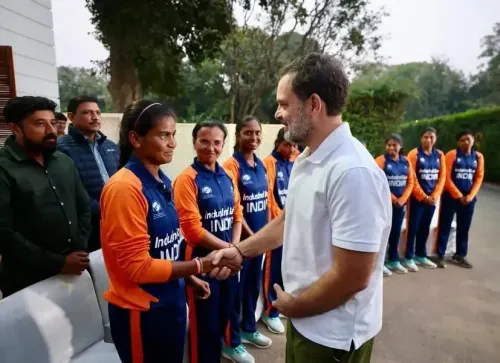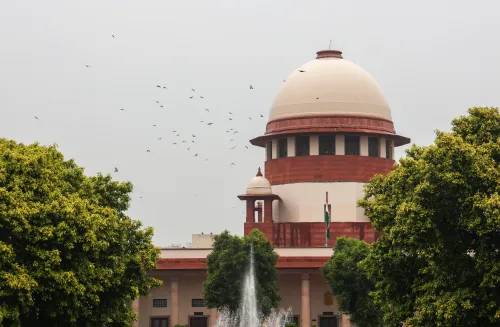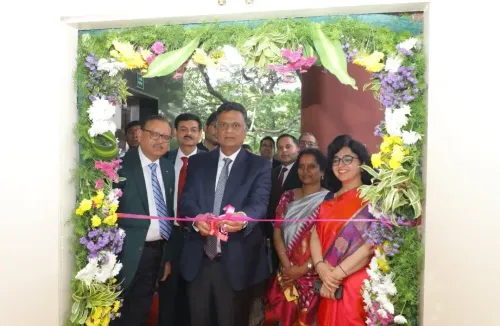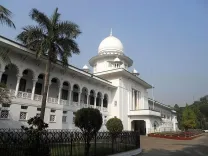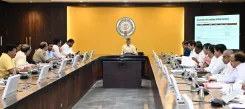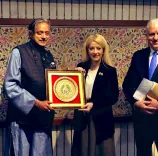Did ECI Engage with NCP Delegation and 28,000 Political Representatives Over 150 Days?

Synopsis
Key Takeaways
- The ECI has engaged in 4,719 meetings over 150 days.
- More than 28,000 political representatives have participated.
- The initiative promotes inclusivity and transparency in the electoral process.
- Various national and state parties are involved in the discussions.
- The ECI aims to enhance democratic practices through these interactions.
New Delhi, Aug 12 (NationPress) — On Tuesday, the Election Commission of India (ECI) convened with a delegation from the Nationalist Congress Party (NCP) headed by its National General Secretary and Authorised Representative, Brijmohan Shrivastav, at Nirvachan Sadan, New Delhi.
Chief Election Commissioner Gyanesh Kumar, alongside Election Commissioners Sukhbir Singh Sandhu and Vivek Joshi, welcomed insights from the party as part of the Commission’s ongoing engagement with political stakeholders.
This meeting is part of a wider initiative of structured interactions that the ECI has been facilitating with leaders and representatives of various national and state political parties. The goal of this initiative is to promote constructive dialogues, allowing political figures to directly communicate their suggestions and concerns to the Commission. The ECI asserts that this approach aligns with its mission to enhance the electoral process in accordance with the current legal framework, ensuring inclusivity and transparency.
In a span of 150 days, the Commission has conducted 4,719 meetings involving over 28,000 representatives from diverse political parties nationwide. This includes 40 meetings led by Chief Electoral Officers (CEOs), 800 chaired by District Election Officers (DEOs), and 3,879 led by Electoral Registration Officers (EROs).
Notable participation in these consultations has been observed from major national parties such as the Bahujan Samaj Party (BSP), Bharatiya Janata Party (BJP), Communist Party of India (Marxist), National People’s Party (NPP), and Aam Aadmi Party (AAP). State parties, including the Trinamool Congress, Samajwadi Party, All India Majlis-e-Ittehadul Muslimeen, Telugu Desam Party, Dravida Munnetra Kazhagam, Shiv Sena, Janata Dal (United), Bharat Rashtra Samithi, and others, have also participated in these discussions.
The ECI has stressed that these interactions are pivotal for fortifying democratic practices by ensuring that all voices are acknowledged.

